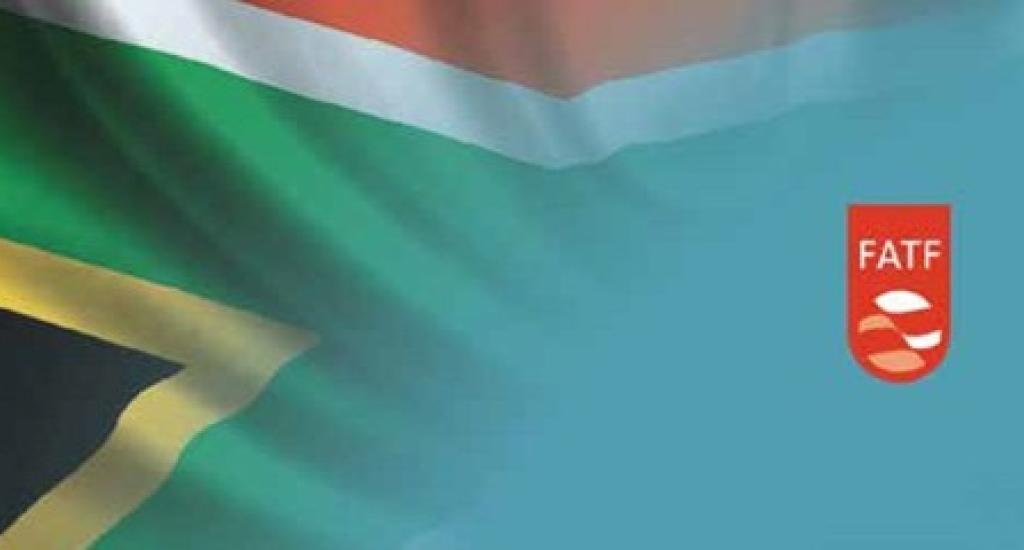South Africa makes significant progress towards exiting FATF Grey list

The Financial Action Task Force (FATF) recently announced that South Africa has successfully completed all 22 action items outlined in the Action Plan adopted following its grey listing in February 2023.
The FATF is a global intergovernmental body that develops policies and sets international standards to combat money laundering, terrorist financing and the financing of the proliferation of weapons of mass destruction.
South Africa's grey listing by the FATF negatively affected the country’s economy and reputation, resulting in reduced foreign investment, higher borrowing costs and diminished international standing.
According to the National Treasury, the decision – made at the last FATF Plenary in Strasbourg in France – recognises South Africa’s progress and calls for an on-site assessment to verify that critical Anti-Money Laundering and the Combating of the Financing of Terrorism (AML/CFT) reforms have been implemented, and that the necessary political will remains in place to sustain progress.
In an exclusive interview with Public Sector Manager magazine, Ismail Momoniat, Technical Advisor to the National Treasury and head of South Africa’s delegation to FATF discussed the significance of this latest development. He outlined the steps the country has taken to address the identified deficiencies and meet the requirements for removal from the FATF grey list.
Grey listing explained
“Firstly, South Africa got grey listed because our system of anti-money laundering, including the legal framework and implementation, was very weak in 2018-2020. I would attribute that directly to State Capture... The FATF basically looks at the abuse of financial systems for money laundering,” he explained.
In simple terms, grey listing makes international financial institutions hesitant to do business with a country’s banks and financial institutions due to the associated bad reputation and higher money laundering risk.
He added that by the time former President Jacob Zuma was forced to resign in 2018, key State institutions, including the South African Police Service (SAPS), the Directorate for Priority Crime Investigation (DPCI) (“Hawks”), South African Revenue Service (SARS), the National Prosecuting Authority (NPA) and others had been severely weakened.
“Under his Presidency, there was also great resistance to update our standards on fighting money laundering, as was the case in 2015-2017. South Africa is a member of the FAFT, which has 40 recommendations [the standards], and when it conducted a mutual evaluation, we failed on 20 of the 40 standards and failed all 11 measures on implementation (that it calls immediate outcomes), and that led to our grey listing in February 2023,” he explained.
Rebuilding
To address the issue, South Africa reached an agreement with the FATF to implement 22 action items as a condition for removal from the grey list – a process that took two years and four months to complete.
In a media statement released in June, the National Treasury commended the dedication and efforts of the law enforcement entities, especially the DPCI of the SAPS, the State Security Agency and the NPA for the sustained increase in investigations and prosecutions of serious and complex money laundering and terrorist financing cases.
This enabled the country to secure the upgrades of the last two remaining action items, often considered to be the most difficult of the 22 action items. The FATF acknowledged this progress in its statement (Jurisdictions under Increased Monitoring – 13 June 2025), which notes:
“South Africa has made the following reforms including: (5) demonstrating a sustained increase in investigations and prosecutions of serious and complex money laundering and the full range of [terror financing] TF activities in line with its risk profile; (7) updating its TF Risk Assessment to inform the implementation of a comprehensive national counter financing of terrorism strategy...".
The National Treasury emphasised that the improvements to South Africa’s AML/CFT regime are crucial for the country, considering the legacy of state capture.
“Improvements in these domains are critical not just for getting off the grey list, but for strengthening the fight against crime and corruption, and for contributing to the integrity of the South African financial system,” stated the National Treasury.
It further stated that exiting the FATF grey list marks a significant step forward as South Africa continues to enhance and strengthen its supervisory and criminal justice systems.
“The completion of the action plan paves the way for the final step before the FATF can delist South Africa, which is an on-site visit to South Africa by the FATF Africa Joint Group,” National Treasury explained.
During this visit, the joint group will assess the country’s ongoing commitment to implementing measures against money laundering, terror financing and other financial crimes.
The on-site visit will take place on 29-30 July before the next FATF Plenary, and if the outcome is positive, South Africa will be delisted from the grey list during the FATF’s next Plenary in October 2025.




